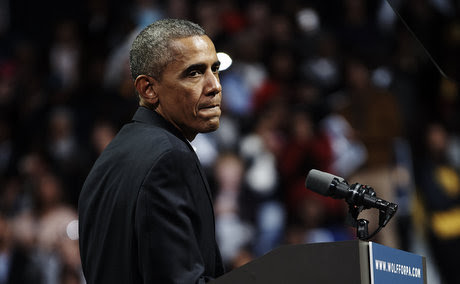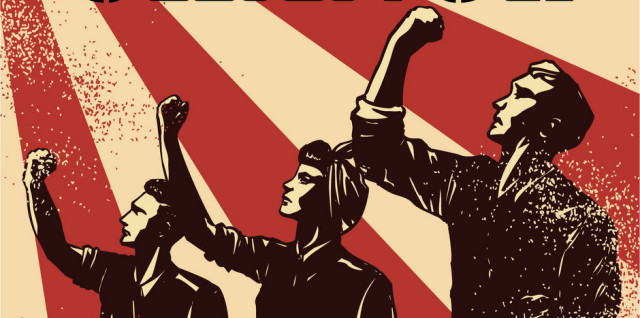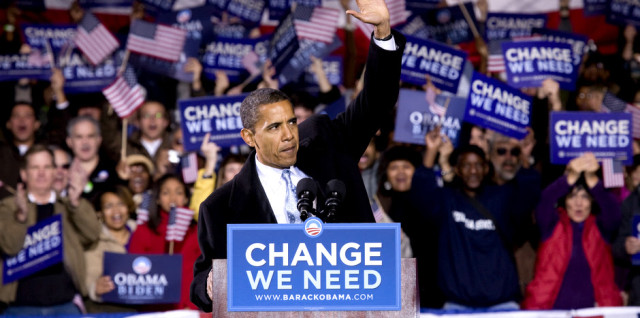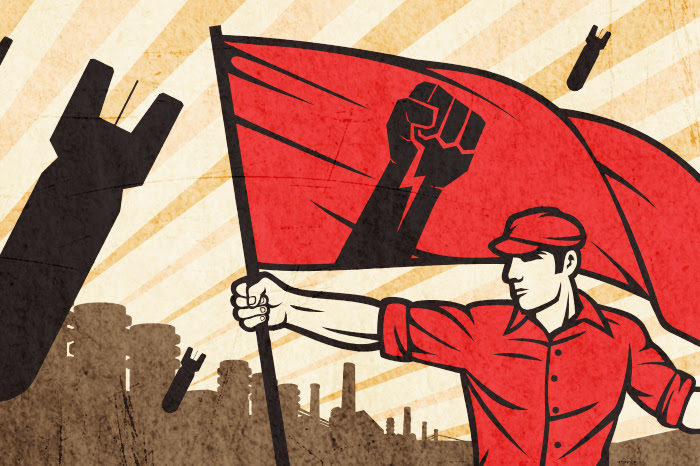The Man Who Sowed the Seeds of Puerto Rico’s Collapse by Lawrence W. Reed
Is there anything more tragically monotonous than a failing welfare state? From ancient Rome to modern Greece, the story is one of the most repetitive in history. It goes like this:
People increasingly decide they’d rather vote for a living than work for one. An academic and intellectual class, dependent on subsidies and anxious to command the economy, advises the people that this is a really good thing. Politicians cater to them with high-sounding rhetoric (“We’ll take care of you”) and low-balling promises (“We can afford it. It won’t cost much. We’ll just take it from the rich”).
Responsibility, self-reliance, and enterprise give way to an entitlement mentality. Power concentrates and corruption ensues. Taxes and debt rise. The government debases the money. Crisis leads to more government, which leads to more crisis. What was always bankrupt morally finally goes bankrupt economically. Goodbye economy, liberty, and often even civilization itself. The barbarians take over. What else is new?
Now it’s Puerto Rico’s turn.
The Commonwealth of Puerto Rico is a US territory in the northeastern Caribbean. Its governor, Alejandro García Padilla, startled the world back in June when he announced that the island cannot pay back its $72 billion public debt.
“The debt is not payable,” García Padilla said. “There is no other option. I would love to have an easier option. This is not politics; this is math.”
He called the situation a “death spiral.” Suddenly, millions of Americans were learning what a basket case the Puerto Rican economy has become. It is indeed a crisis but one that was, to an embarrassing extent, made right here in America.
It was foisted on Puerto Ricans by one lousy New Dealer in particular. His name was Rexford Guy Tugwell.
More on the egghead Tugwell in a moment, but let me bring everybody up to date on just how bad things are down there. Be sure to read to the end because there’s a silver lining in this very dark cloud.
Puerto Rico has been in a funk for a good while. Its stubbornly high, double-digit unemployment rate is more than twice that of the United States. In fact, it hasn’t been below 9.7 percent in 40 years.
The island’s debt is higher on a per capita basis than that of any US state and four times that of Detroit, which went bankrupt two years ago. Businesses are collapsing. People are fleeing (200,000 have left since 2005). Almost half of the island’s 3.7 million residents earn incomes under the US federal poverty line. Nearly 40 percent of all households get food stamps. Until recently, the retirement age for government school teachers was as low as 47, prompting underfunded pension fund crisis so endemic to welfare states. (The retirement age has lately been raised to at least 55 for current teachers, and 62 for new teachers.)
As Tyler Durden explains at ZeroHedge.com, policies imposed from Washington must shoulder a big part of the blame for this mess: the wizards on the Potomac encouraged debt and deficit spending, priced hundreds of thousands of Puerto Ricans out of entry-level jobs with a punishing minimum wage, taxed and regulated commerce and investment to a crawl, and showered the island with debilitating welfare. The place would be a showcase of government-induced prosperity except for one sticking point: government.
All of this has been decades in the making, which brings me to the character named Tugwell. I’ve long had a distaste for this pompous meddler. The more I learn about his role as Puerto Rico’s appointed governor (1941–1946), the more I’m ashamed that a US president was dumb enough to put him in charge of anything.
I first heard of Tugwell as an undergraduate economics major at Grove City College in the early 1970s. Fascinated by what my econ prof, Dr. Hans Sennholz, had said in class about America’s 22nd and 24th president, Grover Cleveland, I checked out a biography of him. It carried the imaginative title, GroverCleveland, and included a revealing subtitle, A Biography of the President Whose Uncompromising Honesty and Integrity Failed America in a Time of Crisis.
The author was Rexford Guy Tugwell, widely regarded as the most influential ideologue of economic planning during Roosevelt’s New Deal. The Cleveland terms were largely wasted opportunities, according to Tugwell, because Cleveland would not turn the economy into his personal plaything. If only he had trashed his honesty and integrity, Cleveland could have been the scientist and the rest of us the lab rats.
Tugwell was the Jonathan Gruber of his day. (Recall the smug academic who admitted that deception was employed to fool stupid Americans into supporting Obamacare.) He went straight from academia as a student (the Wharton School at U-Penn, then Columbia) to academia as a professor (University of Washington, American University in Paris, and Columbia University). His intellectual mentors were socialists like Upton Sinclair and Edward Bellamy. Woodrow Wilson’s wartime administration gave him his first real glimpse of the glorious fun of central planning, and he loved it even when it flopped.
In 1932, President-elect Franklin Roosevelt invited Professor Tugwell to join the first White House “brain trust.” These were the whiz kids — the social scientists and experimenters of the administration. Blessed with power and attention, they were ready to “transform” America and “plan” our way out of the Great Depression.
H.L. Mencken was less charitable in his description. He called them “an astonishing rabble of impudent nobodies,” “a gang of half-educated pedagogues, starry-eyed uplifters and other such sorry wizards.” Along with FDR, they “planned” the Depression into the longest slump in American history.
Tugwell loved to set up and run what came to be known as “boondoggles.” He was an architect of the Agricultural Adjustment Act and later director of its Agricultural Adjustment Administration (AAA), which taxed agricultural processors and used the revenue to destroy crops and cattle to raise prices. It was declared unconstitutional by the Supreme Court and ridiculously destructive by clear thinkers.
From its inception in 1935, he directed the Resettlement Administration (RA), which relocated the rural unemployed to new, planned communities in suburbs. Urban authority Jane Jacobs, in her classic The Death and Life of Great American Cities, showed that his program simply displaced people and ruined neighborhoods. The RA was also thrown out as unconstitutional. True to the statist stereotype, Tugwell learned nothing from either experience. “Planning” was his religion and he was going to be its high priest, come hell or high water.
In 1936, Tugwell left Washington and two years later showed up as the first director of the New York City Planning Commission. He tried retroactively to enforce nonconforming land uses with almost no legal or public support. He proved too much an ideologue even for the polarizing Robert Moses, who killed Tugwell’s 50-year, pie-in-the-sky master plan for public housing.
Now let’s get back to Puerto Rico.
By 1941, Rexford Guy Tugwell had behind him a 20-year career of pontificating for big government and managing expensive government flops. Somehow that gave Franklin Roosevelt the idea of naming him governor of Puerto Rico. What Tugwell did for the mainland, he could now do for an island. Maybe this central planning stuff works better if you work small, right?
Nope.
So for five years, Professor Tugwell became Governor Tugwell. One of the first things he did was to create, with the legislature’s approval, the Puerto Rico Planning, Urbanization, and Zoning Board in 1942. If only he had done what John Copperthwaite did later in Hong Kong or what Ludwig Erhard did in postwar Germany or what inspired free marketers have done in freeing their cities, Puerto Rico might today be a beacon of liberty and prosperity. But Tugwell wanted to plan, plan, plan.
Pedro Serra is president of a new organization in Puerto Rico, the Alliance for the Protection of Liberties. He is a businessman from San Juan whose interest in free-market economics led him to work with the 2012 Ron Paul campaign. Looking back on the Tugwell period, he observes,
When President Roosevelt appointed Rexford G. Tugwell governor of Puerto Rico, it was in keeping with the same economic attitude that characterized the New Deal — that the government can solve an economy’s woes. Our government has since taken as an axiom that economic stagnation results from too little government, not too much. If this were the case, then today’s Puerto Rico should be paradise on earth. Instead our economy is depressed, our people jobless, and our government bankrupt.
Climate would seem to have blessed Puerto Rico for agricultural pursuits. Tugwell’s infinite wisdom suggested it should opt for industry instead, so he directed public policy against farming and toward manufacturing. He lobbied for all the aid and welfare from the mainland he could get. He set the tone for decades of a top-down welfare state. Joe Milligan, a colleague of Serra’s, is originally from Rochester, Michigan, and now brings his passion for free markets to San Juan, Puerto Rico, as the director of development for the Alliance for the Protection of Liberties. Here is how Milligan sums it up:
Governor Tugwell’s legacy is alive and apparent on the island. His tenure in office was characterized by central planning, government growth, and expansion of the welfare state. He stamped out the thriving sugar cane and coffee industries in favor of manufacturing. The result is that now we have neither. Today in Puerto Rico our government is the island’s largest employer and half of all residents require government financial assistance to subsist. In this sense Governor Tugwell truly left his mark.
Indeed, for many years after Governor Tugwell left Puerto Rico for academia back in the United States (where failure is celebrated as long as you worship the state and have good intentions), other New Dealers sojourned to the island to offer more of the same.
One of them was Hugh Barton, who had directed the US State Department’s Office of Strategic Services until he was fired for his knowledge of the communist affiliations of some of his top staff. Barton set up shop with the Puerto Rico Planning Board and the Office of Economic Research. If you had a college degree and a penchant for planning the economy of other people, you could get a government job in Puerto Rico in the 1950s and ’60s. Except for a brief retrenchment under one-term Governor Luis Fortuño, Puerto Rico has been run for decades as Tugwell first envisioned it, exacerbated by Washington’s poor policies to boot.
As I promised early in this article, there’s some good news in this bleak course of events. Puerto Rico now has a nascent libertarian movement and an organization devoted to spreading ideas of liberty as an antidote to the Tugwell legacy — the Alianza para la Protección de Libertades (Alliance for the Protection of Liberties) that Pedro Serra and Joe Milligan have launched.
The Alliance seeks to improve the lives of Puerto Ricans by building a new consensus around this proposition: a free society — not a centrally planned, politicized one — is a more prosperous and tolerant society. It works to build public support for smaller government and advise policy makers in choosing the proven path toward prosperity. The Alliance’s programs include developing a college campus lecture circuit, starting a YouTube channel specific to Puerto Rico’s issues, and disseminating compelling literature to legislators.
Never let a crisis go to waste, as the saying goes. Puerto Rico represents a unique opportunity to undo a painful, statist history. I hope readers will want to help.
To support the efforts of the Alliance, email Pedro Serra, the director, at pedro@protecciondelibertades.org.
“The curious task of economics,” Austrian economist F.A. Hayek taught us, “is to demonstrate to men how little they really know about what they imagine they can design.”
Rexford Guy Tugwell never understood that. With the help of the Alliance for the Protection of Liberties, Puerto Ricans may yet embrace Hayek’s wisdom and thereby shake the curse of Tugwell.
Lawrence W. (“Larry”) Reed became president of FEE in 2008 after serving as chairman of its board of trustees in the 1990s and both writing and speaking for FEE since the late 1970s.





























